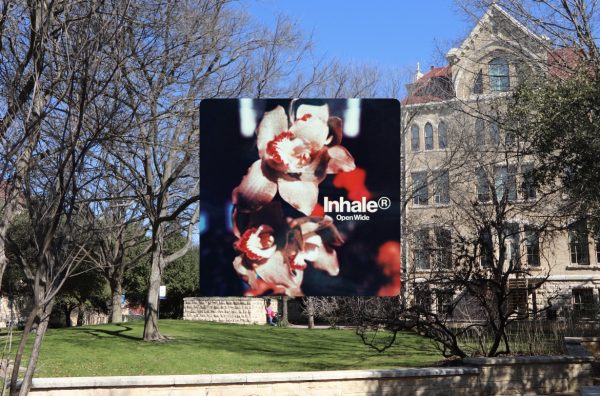Remembering David Bowie: The legacy of Ziggy Stardust lives on
A reflection on one of Bowie’s most influential records
Gianni Zorrilla / Hilltop Views
David Bowie died of liver cancer on Jan. 10, 2016 in New York City. He would have been 74 today.
I was in high school when David Bowie passed. I did not yet know myself (obviously); I was 17, on the precipice of my senior year and figuring it out. Occurring at the height of my teenage music exploration (and the thrilling fervor of discovering and building upon one’s music taste), Bowie’s death hit hard.
I was just getting to know him, I felt, and suddenly, he was gone. Equipped with vinyl and insatiable admiration, I delved into his work. I gazed upward toward his music, a shimmering mirrorball of the human experience laced with glitz and struggle, and in getting to know him, I got to know myself. Today, on what would have been his 74th birthday, I am grateful for his legacy.
I think everyone has a handful of albums that they consider comfort-listens — albums that transcend time and place, granting the same lovely familiarity every time. “The Rise and Fall of Ziggy Stardust and the Spiders from Mars” is one of my comfort albums.
Each track is a masterpiece in its own right. From the inescapable rapture of new love, to the imminent end of existence as we know it and the alien messiah who aims to save it, the record explores all that is visceral about life through a multi-thematic plot line. It exudes extraterrestrial charm, but still remains so very human.
“Soul Love,” a longtime favorite, highlights the coexistence of love and uncertainty, and the persistence of both. Whether as a teenager new to the feeling and exploring what it even means, or as a woman navigating its many facets, this song has always spoken to me.
“Idiotic love will spark the fusion,” Bowie’s Cold War-era lyrics state, but “All I have is my love of love / And love is not loving,” he sings. A metaphor for romantic union, nuclear fusion presents the possibility of catastrophe in the end. Bowie had it down to a science. However, despite fear of mutual assured destruction, we preserve the will to love. Love is natural and unavoidable; it’s “careless in its choosing,” but beautiful.
“When you climb to the top of the mountain / Look out over the sea / Think about the places perhaps / Where a young man could be / Then you jump back down to the rooftops / Look out over the town / Think about all the strange things circulating around.”
As “It Ain’t Easy” suggests, coming down from a dream isn’t fun. We so quickly snap ourselves out of wonderment when real life — our current reality in particular — is so dreary. It becomes apparent as ever when you jump back down to the rooftops and see things for what they are, problems abound. But Bowie reminds us that there is still magic among the chaos. Rather than rejecting the problems, he acknowledges them, embraces them and reminds us that with the help of the good lord, “we can all pull on through.”
As the album draws to a close, “Rock ‘n’ Roll Suicide” leaves a lasting impression that sends chills through my body every time. Its message of hope echoes to this day, and is perhaps needed now more than ever.
“No matter what or where you’ve been / No matter when or where you’ve seen / All the knives seem to lacerate your brain / I’ve had my share, I’ll help you with the pain,” Bowie sings into the ether for anyone down below who may need the reassurance.
“You’re not alone!”
Today, listening to “Ziggy Stardust” hurts. Bowie is deeply missed, but a wave of peacefulness permeates the pain. The starman has ascended to where he’s always belonged: among the stars. And he’ll go on inspiring us earthlings ever-more.

Hey everyone! My name is Gianni Zorrilla. I study communication and journalism and digital media here at St. Edward’s and am one of the Editors-in-Chief...











